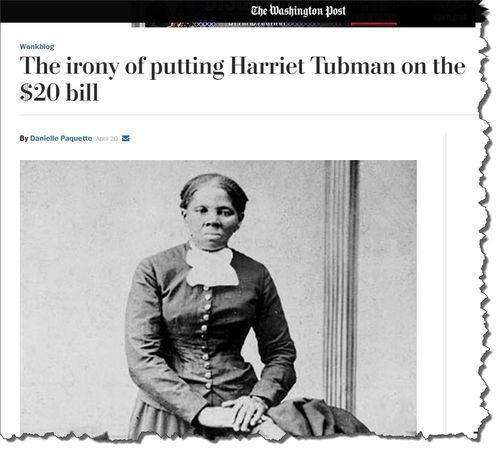Liberals Cannot Decide If Harriet Tubman on the $20 Bill is Good or Bad
In America���s latest, bizarre journey into the land of political correctness, black abolitionist Harriet Tubman will be replacing Andrew Jackson, the seventh President of the United States, as the face on the U.S. $20 bill.
The decision was made by Treasury Secretary Jack Lew, and met with wide approval by many liberals, who are grateful to see an iconic, historical figure from the African-American community finally reach a pinnacle of American symbolism. Founding father Alexander Hamilton, whose image is on the $10 bill, was originally the fellow earmarked to be the odd man out in the government���s quest to put a woman and/or minority figure on the country���s paper money, but Lew said the change to bump Jackson instead was made for several reasons, not least of which is Hamilton���s resurgent popularity as a result of the wildly-successful musical Hamilton currently running on Broadway.
Wouldn���t you know it, however���the decision to put Tubman on a piece of American currency has actually angered some in the liberal community who think it inappropriate that she should serve as a symbolic representative of the very capitalism (they say) she fought in her capacity as an anti-slavery warrior.
In fact, The Washington Post���s Wonkblog has an article up, ���The irony of putting Harriet Tubman on the $20 bill,��� that makes the case for wrongheadedness in the decision to have Tubman���s likeness featured on money. In addition to quoting various activists who feel this way, article author Danielle Paquette herself points out, ���The abolitionist icon, after all, fought the oppressive system that launched our economy. Why would she want to become a symbol of it?��� According to Paquette, then, the entire American system of capitalism would not exist without slavery.
Really?
Here, again, liberals reinforce the truth behind something actor Robert Mitchum once said: ���There just isn't any pleasing some people. The trick is to stop trying."
By Robert G. Yetman, Jr. Editor At Large




